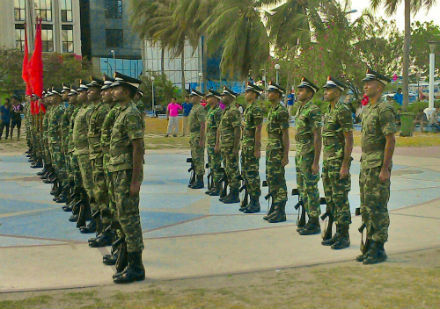Maldives joins Saudi-led anti-terrorism military alliance
Announcing the new coalition at a press conference last night, Saudi Deputy Crown Prince Mohamed bin Salman, also the kingdom’s defence minister, said the campaign would “coordinate” efforts to fight terrorism in Iraq, Syria, Libya, Egypt, and Afghanistan. “Every country will be participating according to its capabilities and we will not only fight [the Islamic State], but any terrorist group,” he said.

15 Dec 2015, 09:00
The Maldives is among 34 countries that have joined a Saudi Arabian-led Islamic military alliance formed to combat terrorist organisations.
According to a statement from the state-owned Saudi Press Agency, “a joint operations centre shall be established in the city of Riyadh to coordinate and support military operations to fight terrorism and to develop the necessary programs and mechanisms for supporting these efforts.”
Announcing the new coalition at a press conference last night, Deputy Crown Prince Mohamed bin Salman, also the kingdom’s defence minister, said the coalition will “target all terrorist organisations in the Islamic world.”
The campaign would “coordinate” efforts to fight terrorism in Iraq, Syria, Libya, Egypt, and Afghanistan.
Become a member
Get full access to our archive and personalise your experience.
Already a member?
Discussion
No comments yet. Be the first to share your thoughts!
No comments yet. Be the first to join the conversation!
Join the Conversation
Sign in to share your thoughts under an alias and take part in the discussion. Independent journalism thrives on open, respectful debate — your voice matters.




